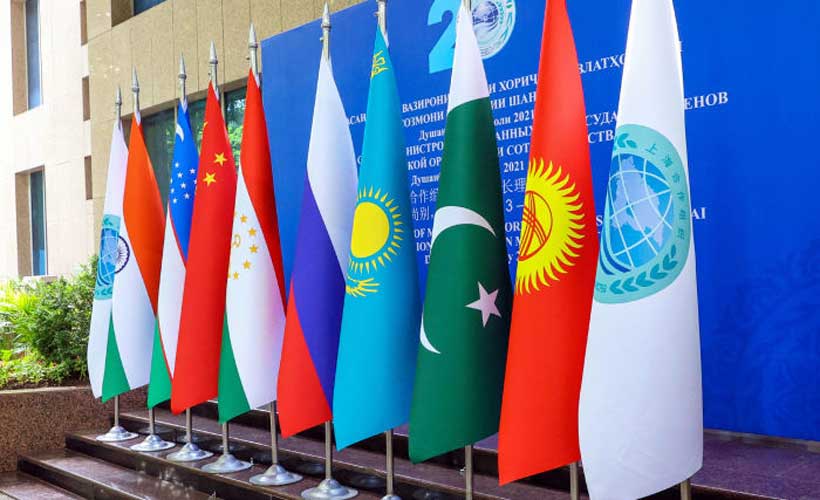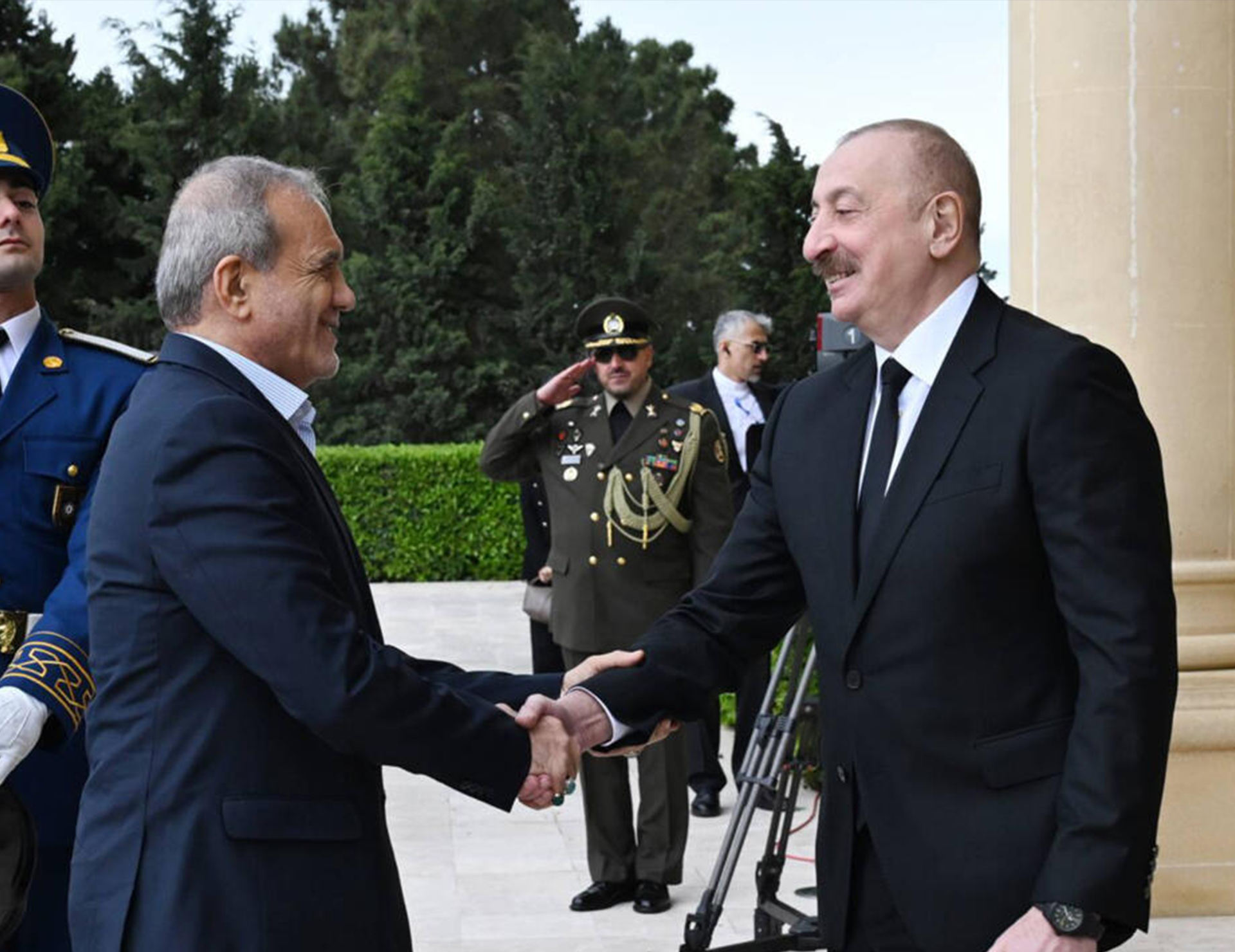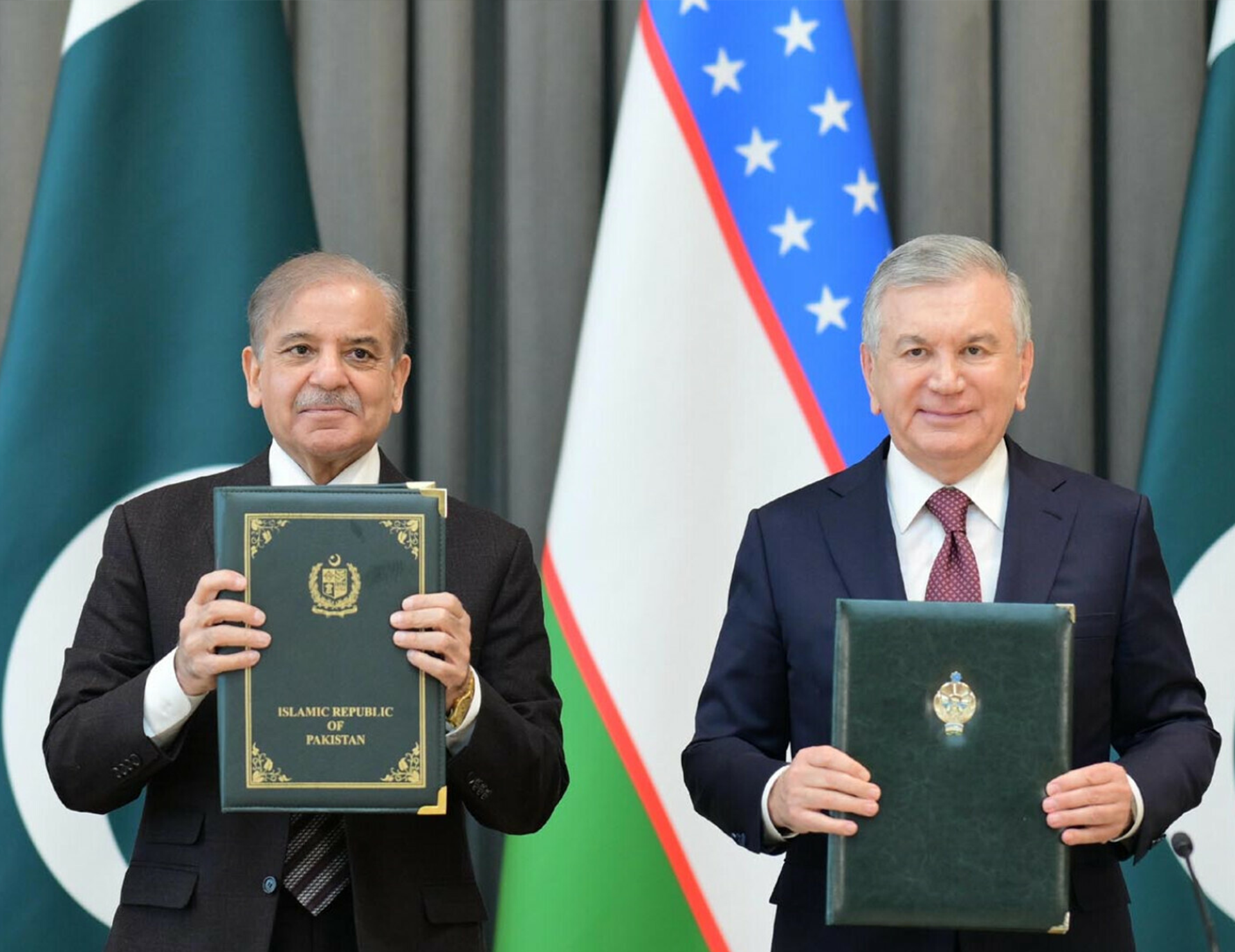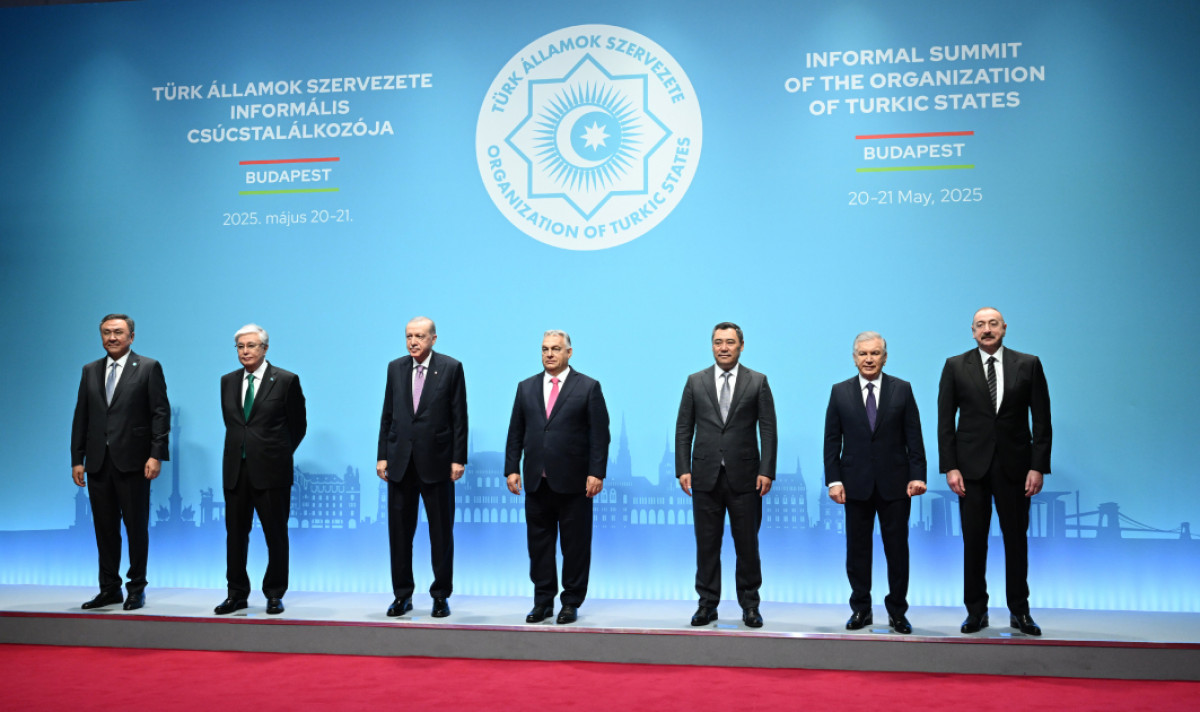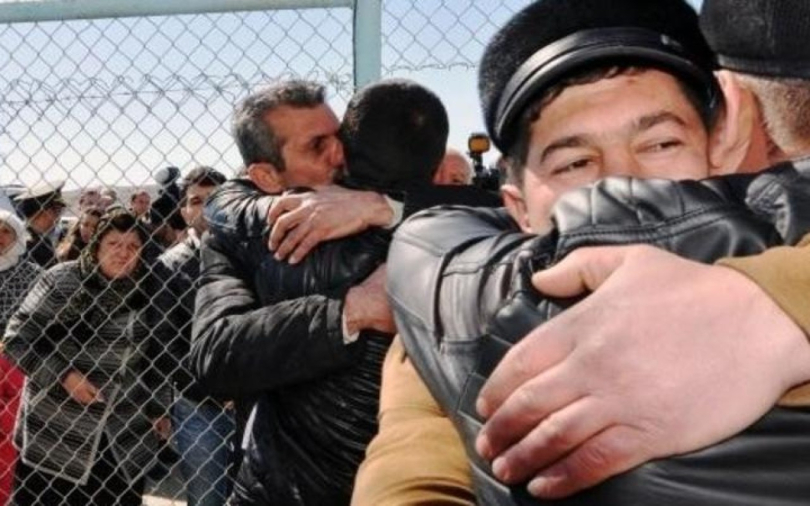The Shanghai Cooperation Organization (SCO) Summit in Astana on July 4 marked a central moment for regional cooperation and economic integration.
The Shanghai Cooperation Organization (SCO) Summit in Astana on July 4 marked a central moment for regional cooperation and economic integration. The participants of the “SCO Plus” summit held under the slogan “Strengthening Multilateral Dialogue—Striving Towards a Sustainable Peace” appealed to the world community to start an open global dialogue and adopt a new security paradigm.
Azerbaijan’s participation, highlighted by President Ilham Aliyev’s presence, emphasized the nation’s dedication to multilateral dialogue and collaborative efforts to address regional and global challenges. Moreover, President Aliyev’s participation in an SCO Summit for the second time following the 2022 event in Samarkand, highlights Azerbaijan’s growing influence within the organization.
Founded in 2001 by China, Russia, Kazakhstan, Tajikistan, Kyrgyzstan, and Uzbekistan, the organization currently has ten full members. The founders were joined by India and Pakistan (2017), Iran (2022) and Belarus (2024). As the organization’s authority and influence strengthen, interest in its activities from other states and international structures grows naturally. According to Secretary General Zhang Ming, several countries want to join the SCO. Azerbaijan, Armenia, Bangladesh, Cambodia, and Sri Lanka have reportedly submitted a request to change their status from dialogue partner to observer country. This is considered an intermediate stage on the way to full membership in the organization. All of the above-mentioned countries that joined the SCO were initially observers. Only two observer countries remained after Belarus joined the organization: Mongolia and Afghanistan. Considering that the latter does not have a generally recognized government, the SCO should therefore increase the number of observers.
It should be recalled that Azerbaijan was granted the status of a dialogue partner at the Ufa summit in 2015. According to the Memorandum signed in 2016 in Beijing, the parties agreed to cooperate in the following areas of mutual interest: strengthening regional security and stability; fight against terrorism, extremism and separatism; action against illegal production and circulation of narcotic drugs, psychotropic substances and their precursors; fight against cybercrime and other types of transnational organized crime; cooperation in the fields of trade and investments, energy, telecommunications, agriculture, as well as promotion of direct relations between small and medium business entities; interaction on legal and customs issues; effective use of existing infrastructure in the field of transport and communications, development of transregional multimodal transport corridors and transit potential; development of mutual activity in the fields of culture, science and technology, education, health and tourism; mutual assistance in the direction of prevention of natural and man-made emergencies and elimination of their consequences; strengthening of inter-civilizational dialogue, multiculturalism and tolerance.
However, Azerbaijan’s ambitions have been consistently higher than the status of a dialogue partner, and it has repeatedly expressed the intention for further development of cooperation.
During the meeting with Zhang Gaoli, Member of the Standing Committee of Central Politburo of the Communist Party of the People’s Republic of China, Senior Vice Premier of the State Council on May 31, 2016, Ilham Aliyev, President of the Republic of Azerbaijan stated that Azerbaijan considered a dialogue partner status granted by the SCO as the first step toward full integration into the organization, and added that cooperation with this organization occupied an important place in Azerbaijan’s foreign policy.
On April 16, 2018, in a letter of congratulation to Ilham Aliyev for the re-election as the President of the Republic of Azerbaijan, Chairman of the People’s Republic of China Xi Jinping mentioned that Azerbaijan had recently applied to the SCO for membership as an observer state. He added that China attaches great importance to Azerbaijan’s application and will consider it with other member countries of the SCO based on unanimous consent.
Later, during the meeting with a delegation led by the president of the Chinese People’s Association for Friendship with Foreign Countries, Li Xiaolin on August 31, 2018, First Vice-President of the Republic of Azerbaijan Mehriban Aliyeva reiterated that Azerbaijan had recently submitted an application to the SCO for an observer status.
On July 3, 2024, the joint declaration on establishing a strategic partnership that Azerbaijan and China adopted stated that China supports the enhancement of Azerbaijan’s legal status in the SCO. The sides noted that special attention would be paid to this issue within the framework of China’s chairmanship next year. Xi Jinping also invited the President of Azerbaijan to the SCO Summit, which will be held in China.
As it stands, Azerbaijan is interested in consistently expanding interaction with the SCO in general and with separate SCO member states. Azerbaijan has close and good-neighborly relations with all the member countries of the SCO. In particular, the recent adoption of the Joint Declaration between Azerbaijan and China to establish a strategic partnership is a noteworthy development.
It is worth mentioning that after gaining the observer status, Azerbaijan will have the right to participate in open SCO meetings, discuss issues on the organization’s agenda without the right to vote, and gain access to some documents. Today, as a dialogue partner, Azerbaijan only actively participates in the SCO’s activities in various areas. However, Azerbaijan’s joining to SCO as an observer will be significant in regional and global context.
The SCO offers a platform for Azerbaijan to articulate its distinctive role as a bridge between East and West, a role that it is increasingly well-positioned to play. Azerbaijan implements many important projects related to transport, energy, and infrastructure projects in a bilateral and sometimes in a trilateral format. Therefore, Azerbaijan could serve as a hub for promoting trade and transport corridors in the Eurasian landmass and, hence, possesses the capability to make a yielding contribution to the SCO members.
Therefore, the SCO’s vision of connecting Asia with Europe through infrastructure and trade particularly aligns with Azerbaijan’s strategic objectives. By participating in the SCO, Azerbaijan not only stands to benefit from increased trade and investment but also positions itself as a key player in shaping the economic landscape of Eurasia.
It is noteworthy to mention that Azerbaijan has made substantial investments in infrastructure, enhancing its role as a key logistics hub in recent years. The development of the North-South and East-West transport corridors, along with the Baku-Tbilisi-Kars railway, exemplifies Azerbaijan’s efforts to improve regional connectivity. These projects facilitate faster trade routes between Asia and Europe, contributing to the overall economic growth of the wider region.
Notably, the environmental agenda is becoming increasingly relevant for the organization in connection with global warming. The SCO has already held a forum on green development, which was held with the participation of Azerbaijan on July 8-9 in the Chinese city of Qingdao. This is the first high-level event among the SCO member states dedicated to green development. We may remark, en passant, that 2024 has been declared the year of the SCO ecology, and 2025 the SCO Year of Sustainable Development.
The green agenda of the SCO coincides with Azerbaijan’s active engagement in global climate initiatives. Azerbaijan’s hosting of the 29th session of the Conference of the Parties to the UN Framework Convention on Climate Change (COP29) highlights its broader commitment to global issues.
Furthermore, Azerbaijan’s collaboration with the SCO can tangibly play a crucial role in the reconstruction and rehabilitation of Karabakh, which was liberated from Armenia’s occupation in 2020.
Meanwhile, the participation of Azerbaijan and Armenia in one integration project, especially one like the SCO, can positively affect the security structure of the South Caucasus region in particular and the Eurasian region as a whole. A secure, stable and peaceful South Caucasus ultimately leads to a peaceful world that is, by all accounts, in the interest of all stakeholders in the SCO.
Besides, Azerbaijan’s efforts to enhance its cooperation with the SCO assert that its foreign policy aligns with the SCO’s vision of a secure and collaborative Eurasian community. Azerbaijan predominantly stresses geo-economic priorities, supporting international transport corridors with tangible actions. By leveraging this platform, Azerbaijan can continue to drive its economic development and regional cooperation goals forward. This approach reflects a pragmatic and ambitious vision for the future, where Azerbaijan’s strategic initiatives and international partnerships contribute to a stable and prosperous Eurasian region.
In brief, Azerbaijan, by seeking enhanced partnership with SCO, reaffirms its traditional balanced foreign policy, aimed at utilizing potential from cooperating with the East and West. Azerbaijan’s engagement with the SCO accordingly serves the interests of both sides and strengthens stability in the Eurasian space.
Naghi Ahmadov and Gultan Abdinova

